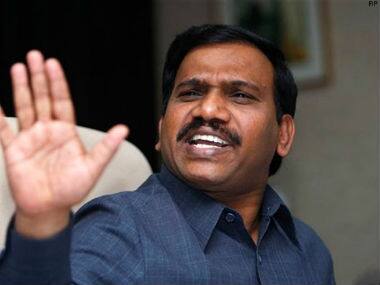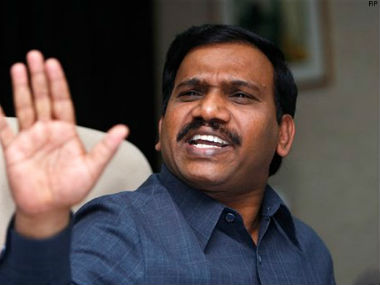The acquittal by a special CBI court of A Raja, former telecom minister in the erstwhile Manmohan Singh government and DMK MP Kanimozhi in the infamous 2G spectrum scam case has understandably stirred a hornet’s nest. The verdict is likely to have major political repercussions nationally as well as in Tamil Nadu. The BJP will be hard put to explain its criticism of the Congress over the controversy. But it would be a grave folly for the Congress to project the judgment as amounting to a repudiation of all charges in the 2G scam. That there was corruption and mismanagement on a big scale under the UPA regime is now a well-accepted truth which can hardly be wished away. Special CBI judge OP Saini said in his judgement that the prosecution had failed to prove the guilt of the accused beyond reasonable doubt. This is a reflection on not only the prosecution which apparently built up a weak case but also on the then Comptroller and Auditor-General of India Vinod Rai whose claim that there was a whopping loss of Rs 1.76 lakh crore due to the under-quoting of spectrum prices triggered the whole row. The second generation spectrum licenses for mobile communication and limited data transmission were the bone of contention. [caption id=“attachment_4269625” align=“alignleft” width=“380”]  File image of A Raja. News18[/caption] It is most likely that the CBI would go in appeal before the Delhi High Court, but the damage is done. It can only be mitigated if the High Court overturns the special court verdict and convicts the accused, which is a far-fetched possibility. The prosecution’s role in pursuing the case needs to be duly probed to establish whether there were any forces at work to exonerate the accused in the case. Also, it needs to be probed whether there was a nexus of some politicians with concerned businessmen that worked to weaken the prosecution case. But it can hardly be overlooked that the CAG had said at that point that licenses had been issued to ineligible applicants who had deliberately suppressed facts, disclosed incomplete information, submitted fictitious documents and used fraudulent means for getting licenses and thereby access to spectrum. That the apex court subsequently quashed the spectrum licences was a vindication of the CAG’s position at least in part and a censure of the Manmohan Singh government’s allocations, which had cost the country hugely as compared to the auctions route. The CAG report had gone on to say that licence holders had in turn sold significant stakes to the Indian/foreign companies at high premium within a short period of time. The premium earned by these new entrants to the telecom sector was estimated to be the true value of the spectrum. In a free and fair bidding process, these profits should have accrued to the public exchequer. These were weighty observations which can hardly be brushed aside. Significantly, the Supreme Court had, by cancelling the 122 licences for spectrum allocation on the basis of a first-come, first-served policy indicated that it was irregular and unacceptable. The apex court had indeed called it unfair and intended to cause loss to the Government of India and had directed the government to have a fresh policy. The manner in which the cut-off date for spectrum allocations was advanced was doubtlessly arbitrary and intended to favour a few. Finance Minister Arun Jaitley has reiterated the claim that the then government’s favourites were told in advance about the allocation policy so that they could take advantage of it and that even the first-come first-serve policy was modified to a first-come, first-pay policy to suit the intended beneficiaries. A well-thought-out appeal to the High Court must be filed at the earliest. There cannot be any doubt that the surfeit of scams during the UPA regime were the result of unbridled corruption and the weak-kneed policies of the Manmohan Singh government. That truth cannot be negated on the basis of a judgement that is based on lack of evidence adduced by the prosecution. While the Modi government has time to recover any loss of ground since Lok Sabha elections are a year and a half away, the Tamil Nadu government could be in trouble with the DMK’s ascendancy. The Palaniswamy government has a poor grip on the administration, and the ruling AIADMK is riven by factionalism. In the circumstances, the mass appeal of the DMK could get a shot in the arm. It would be premature to speculate whether this could lead to elections to the Assembly before the scheduled time, and whether the DMK would have the upper hand. But the bell may start tolling for the AIADMK. Follow live updates here
It would be a grave folly for the Congress to project the judgment in the 2G spectrum case as amounting to a repudiation of all charges levelled against the UPA government.
Advertisement
End of Article


)



